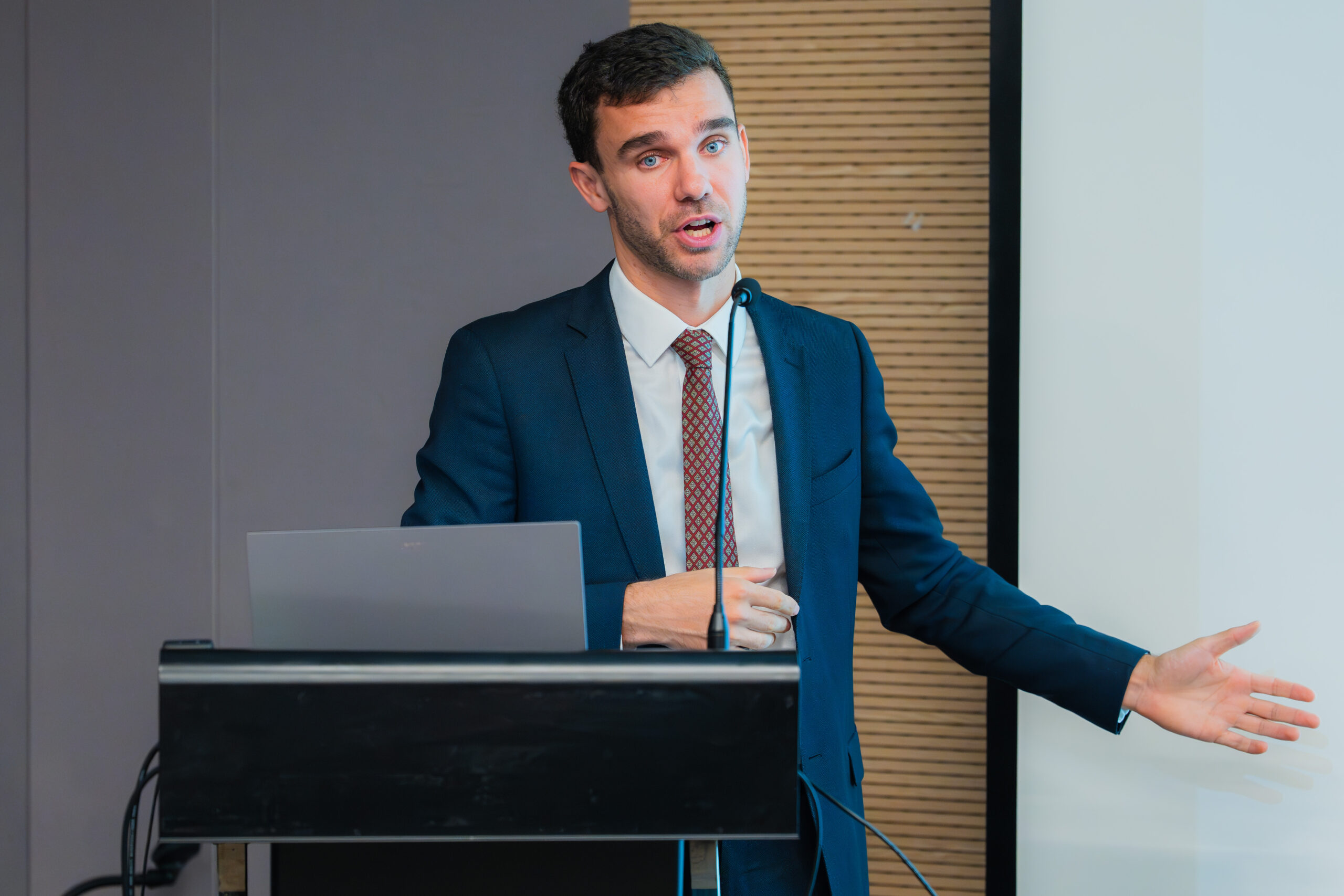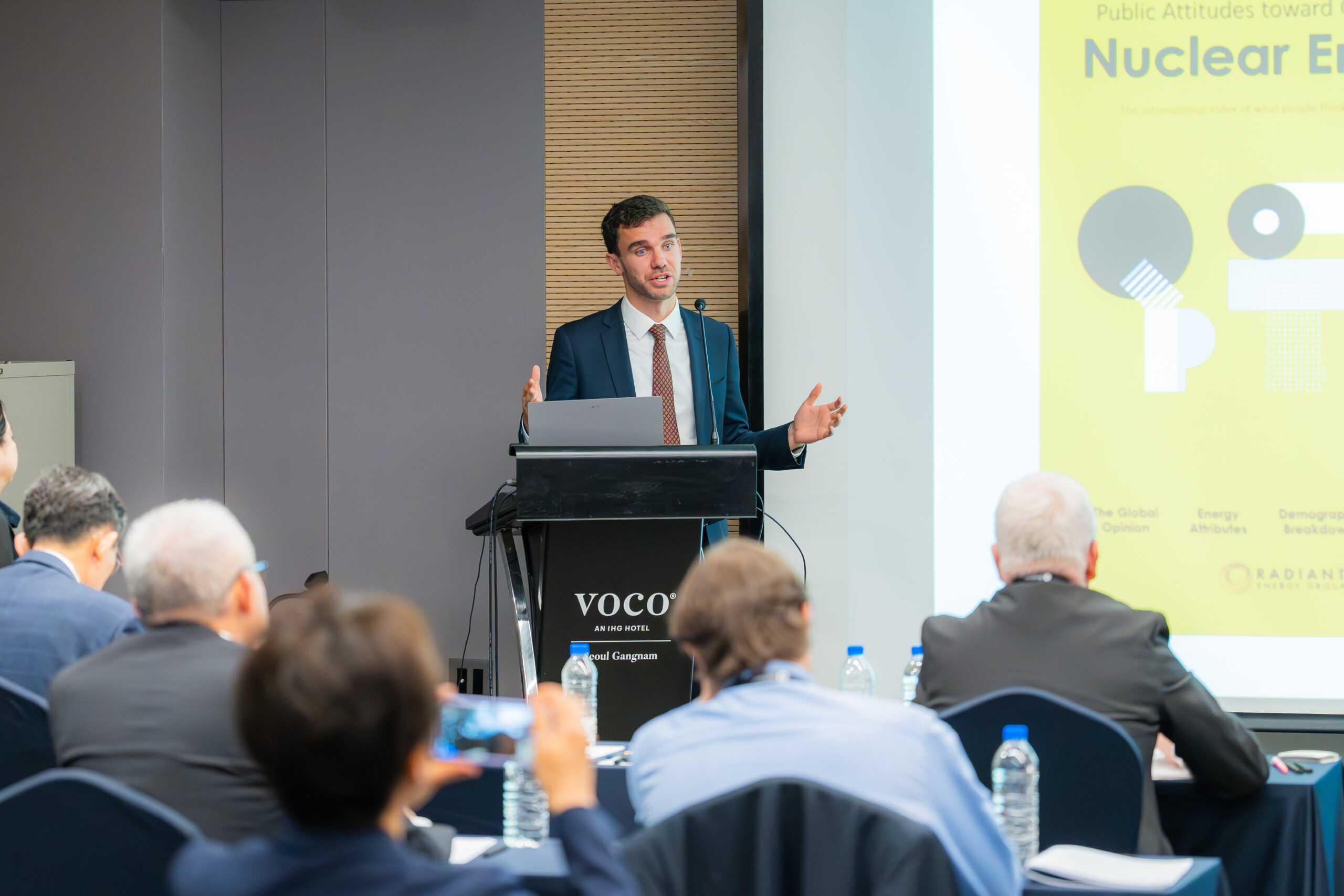SEOUL, South Korea — May 28, 2024 — Richard Ollington, Partner at Radiant Energy Group, presented findings from his organization’s public opinion survey on clean energy, including nuclear energy, at this year’s Asia Pacific Nuclear Energy (APNE) Conference, which Anthropocene Institute was a sponsor of. The APNE summit focused on developing nuclear energy in the Asia Pacific region, particularly the ASEAN countries currently looking at nuclear energy as a viable addition to their countries’ energy mix, considering growing energy demands.
Ollington heads up Radiant Energy’s Public Attitudes toward Clean Energy (PACE) Index, the world’s largest publicly released study on attitudes toward nuclear energy. Savanta conducts the survey, which Radiant Energy Group commissions and analyzes. The results presented at APNE cover polling in the Philippines, Vietnam, Indonesia, and Thailand.


Ollington discussed varying levels of public support for nuclear energy due to safety concerns and a lack of understanding in these four ASEAN nations. He highlighted public perception based on gender, age, and political divides and contrasted support for nuclear energy with other energy sources, such as onshore wind and biomass.
In the Philippines, 52 percent of respondents support nuclear energy, with solid support outweighing opposition. By contrast, support for nuclear power is low in Vietnam, Thailand, and Indonesia. “In the Philippines, nuclear is much more of a national debate,” said Ollington. “83 percent of Filipinos perceive nuclear as a reliable energy source, which helps contribute to why Filipinos have a positive view of nuclear, and similarly with cost. They see nuclear power as a way to reduce their electricity bills.”
Unfortunately, that’s not true in Vietnam, Indonesia, and Thailand. Respondents in these three ASEAN nations cited public health and safety concerns and placed less emphasis on reliability. “In Vietnam, two percent of people see nuclear energy as safe, and in Thailand, it’s 9 percent,” said Ollington. However, few were confident in their answers when asked if they knew how nuclear works in these countries. “We found that the countries closest to Japan have the lowest positive perception of nuclear safety due to the Fukushima incident,” he said.
Ollington also dissected nuclear support by gender, age, and political affiliations. He noted that support for nuclear energy among men is higher than among women across the board and that conservatives are generally more supportive. Younger generations in Vietnam are the least supportive of nuclear power.
Given these findings, Ollington noted that it is vital to consider ways to improve public knowledge about nuclear technology and address safety concerns in Vietnam, Indonesia, and Thailand. ASEAN nations can learn several important lessons from how the Philippines engaged the public and garnered support through competition among communities. Ollington concluded that other ASEAN nations can learn from the Philippines’ approach to building public support for nuclear energy through strong leadership and community engagement.
“In the Philippines, there’s much ambition to build nuclear power, and leaders speak proudly of it on the news,” he said. “The public sees this strong leadership and vision and gets inspired to look on Wikipedia, YouTube, and TikTok to answer their concerns and learn more about exactly how nuclear works. They also take a localized approach by going to the mayor of each island and asking if the island wants a reactor, making it a competition. The mayors are in favor because of the jobs and so on that nuclear power provides. So they are the voices for the benefits nuclear provides, and that’s something the other ASEAN nations can do.”
Read the full PACE report for 2023 here.